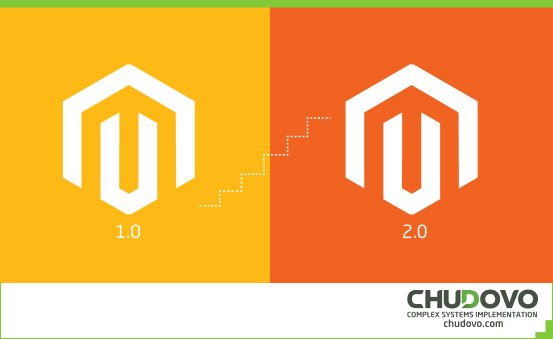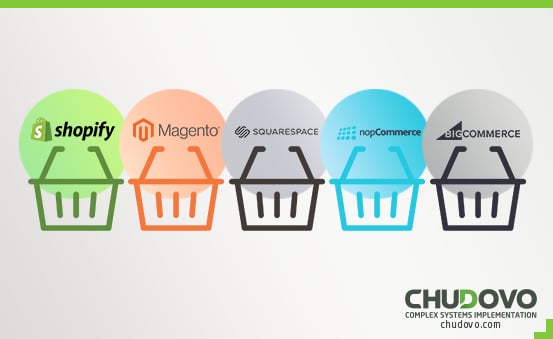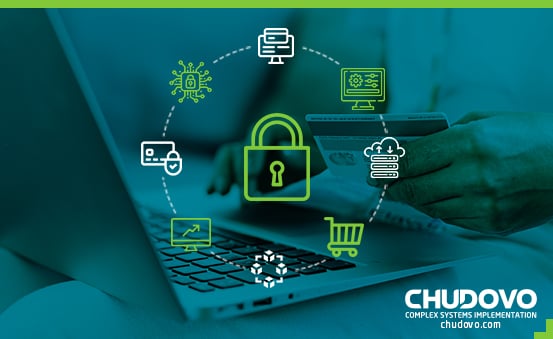7 Best Enterprise Ecommerce Platforms
Enterprise e-commerce software provides a means for large businesses to reach their customers easily and quickly and does the same for the customers. It’s no surprise that more businesses are joining the enterprise eCommerce platform an wagon and for a good reason.
Statista predicts that the e-commerce market may reach US$3.59tn by the end of 2022, with a growth rate of 12.24% from 2022 to 2027. With this predicted growth, more businesses would need to jump on the enterprise e-commerce software train to improve their profits.
But what are thebest enterprise eCommerce platforms, and how can you tell what’s best for your project? In this guide, we’ll define enterprise e-commerce platforms, the best platforms currently, and how you can choose the best for your business project.
Table of Content
What Are Enterprise E-commerce Platforms?
An enterprise e-commerce platform is software that helps large businesses operate and trade with their customers online. Enterprise eCommerce software supports large businesses to grow sales, track orders and inventory, and scale more efficiently.
Not every business needs to use an enterprise e-commerce platform to run its business operations. It all depends on your business size and volume of operation.
If you’re a small business with a small volume, you might be better off with simpler e-commerce platforms tailored for small businesses. However, if you’re already pulling weight or just starting to pull thousands of customers, employees, and millions in revenue, you might consider incorporating an eCommerce solution into your operation.
Basic E-commerce platform functionalities
Every business has its needs based on peculiarities. But a good enterprise eCommerce platform must, in addition to commercial activities, cover operations including reporting and analytics, marketing, resource planning, relationship management with customers, accounting, order and inventory management, and many more.
Here’s an outline of the essential enterprise e-commerce platform functionalities to look out for:
- Provides high security with seamless and cost-effective scalability
- Provides B2B and B2C e-commerce opportunities and other types of commerce, including C2C, B2B2C, etc.
- Able to integrate seamlessly with physical store software
- Integration for marketing, ERP, accounting, and CRM.
- It allows you to brand your business and product freely
- AI-powered recommendation personalizations for users
- Multi and omnichannel commerce and content delivery for a smoother customer experience
- User-friendly user interface and customer experiencefrom login to catalog browsing to checkout.
- Opportunity to scale and expand in line with business growth
Types of enterprise eCommerce software
Every e-commerce platform will differ according to what they can offer your business regarding functionality and technicality. The main types of enterprise eCommerce software are On-site and Cloud-based.
Onsite eCommerce software is cost and human-resource intensive. You’ll need programmers on-site to develop and maintain the platform.
With cloud-based eCommerce software, everything is hosted and operated on the cloud. It is relatively less expensive than on-site options and comprises three different types:
- Headless: Adaptable and flexible architecture, an alternative to interdependent architecture
- SaaS (software as a service): Third-party owns the platform and hosts your content for a fee
- Open source cloud-based: You own the code and can modify it as you wish, giving you complete control over security. It’s also programming intensive.
E-commerce platforms are also categorized according to their underlying architecture. They can either be Monolith (Traditional, highly coupled frontend and backend) or Headless (flexible, decoupled architecture, microservice-based).
What are the benefits of enterprise eCommerce software?
The benefits of enterprise eCommerce software integration in your large business include:
- Cost-effective scalability: An enterprise eCommerce solution provides a more accessible and less cost-intensive way to scale operations.
- Boosts customer engagement and retention: With the combination of a user-friendly interface and intuitive design coupled with AI-powered recommendation marketing, eCommerce platforms can help businesses to boost their customer experience and retention rates.
- Efficient business operations: Enterprise eCommerce softwarewill enable businesses to streamline their processes and eliminate bloated activities and expenses. This results in a more optimized way of conducting business operations and profits.
- Data-backed decision-making:E-commerce platforms provide analytical data about their products and customers. Businesses can use this data to make better decisions for their customers.
- One-on-one marketing: The best enterprise eCommerce solution provides a means of conducting personalized marketing approaches with AI. Each marketing campaign targets each customer differently based on their preferences and history.
- Wider reach: E-commerce platforms enable businesses to reach a broader range of customers than they already do.
- Improved technical capacity: Large businesses can enjoy an improved capacity to manage high traffic volumes, security threats, listed product offerings, and storage capacity.
- Branding: Businesses can customize theireCommerce solution to resemble their global brand look and feel.
- Interconnected integration: The eCommerce platform isn’t all there is to the business operations. Your best enterprise eCommerce softwarewould integrate seamlessly with other software used in the business.
What Are The Best Enterprise E-commerce Platforms?
Many enterprise eCommerce platforms spring up to get a piece of the market. However, not many survive, and those that do can help their customers reach their business goals.
The top seven enterprise eCommerce software are:
- Shopify
- BigCommerce
- Magento Commerce
- Sitecore Experience Commerce
- SAP Customer Experience
- Salesforce Commerce Cloud
- Oracle Commerce
1. Shopify
Shopify is a more popular choice partly for its accessibility and its user-friendly functionality. It’s a great enterprise eCommerce solution for large businesses that want a ready-made solution that doesn’t require extensive customization or programming knowledge.
Shopify covers security protection, bandwidth, and code that won’t fold under the pressure of thousands of customers per minute. Pros of using Shopify include:
- Ready-to-use eCommerce platform
- Plugins and extensions for customization
- Highly reliable and stable
- Extends business reach across more locations and sites
- Round-the-clock priority customer service
- Omnichannel commerce
Shopify also has the following cons:
- Limited B2B functionality
- Prices change frequently and are heavily dependent on added functionality, making final costs hard to calculate
- Limited branding customization
- No access to code
2. BigCommerce
BigCommerce is explicitly created to support large businesses. It’s a cloud-based enterprise e-commerce system that supports large businesses through their B2B and B2C operations. It provides functionalities that make it easier to retain customers and turn them into loyal buyers.
Here are the pros of BigCommerce:
- Enthusiastic customer support
- Wide partner network
- Integrates seamlessly with payment gateways, business software, and applications
- Includes features for bulk pricing and quote management along with other online-shopping functions
- Can handle high traffic
- Intuitive content management
- Headless commerce and content delivery
And it has cons such as:
- Volume of sales determines the pricing
- Steep learning curve
- Needs development expertise
3. Magento Commerce
Magento Commerce is an open-source, end-to-end, all-in-one PaaSe-commerce solution that facilitates online shopping. It was acquired by Adobe in 2018 and is heavily supported by a large developer community.
Magento Commerce supports a wide range of enterprise eCommerce Magento solutions, like Magento ePOS with customization access and flexibility to fit your budget. Its benefits include:
- Single-platform multi-site management
- Mobile and progressive web applications
- Endless built-in and extension-based customization possibilities
- Wide customer reach
- AI-powered customer experience personalization
- Omnichannel B2B and B2C commerce
On the other hand, it also has the following disadvantages:
- Insufficient customer support
- Needs software programming and design expertise
- Has performance issues that intensify with scale-up
- Security certificates, migration, and hosting incur additional charges
4. Sitecore Experience Commerce
Sitecore is a world-renowned customer management system. Sitecore created the Sitecore Experience Commerceplatform that enables large companies to create online end-to-end immersive shopping experiences for their customers with a combined capability for content management, marketing, and commerce needs.
Businesses using this platform will experience the following benefits:
- Helpful customer support and community
- Flexibility for consistent branding across channels
- Single-platform, one-to-all content management
- Omnichannel content delivery and commerce operations
- AI-based personalized shopping experiences for customers
Unfortunately, Sitecore falls short, and you’ll need software programming experience and expertise to fully use the service. This can cause additional costs on your part.
5. SAP Customer Experience
SAP Customer Experience (previously SAP Hybris) is perhaps the best of all seven enterprise eCommerce platformson this list. SAP customer experience is an all-encompassing, influential solution leader for providing customer relationship and experience management for businesses. With SAP and the range of products under its umbrella, businesses can build eCommerce stores to their taste and requirements.

Certified engineers
Convenient rates
Fast start
Profitable conditions
Agreement with
EU company
English and German
speaking engineers
The products under SAP Customer Experience cover post-sales service, sales automation, marketing, andcustomer experience all under one platform. These products support the automation of the buyer’s every step, making the buying process seamless.
They include:
- SAP Service Cloud for customer service
- SAP Marketing Cloud for customer engagement
- SAP Sales Cloud for streamlined sales
- SAP Customer Data Platform for collecting user-specific data for analytics and decision-making
- SAP Commerce Cloud for enabling online commerce operations
If you use SAP Customer Experience, you’ll experience the following benefits:
- Online and on-site hosting
- User-friendly data handling
- Supports multiple languages and locations
- Headless commerce
- Marketing automation
- Historical customer service
- Reliable and safe data handling
- Efficient eCommerce functionality
Unfortunately, for some businesses, SAP and its various advantageous services come at a high cost. Hence, it’s not easily accessible in terms of budget.
Aside from its cost intensiveness, SAP CX is difficult to develop. Hence, it would need high technical experience to enjoy its functionalities fully.
6. Salesforce Commerce Cloud
Salesforce is a global customer relationship management (CRM) platform that encourages collaborative customer experience. It then expanded to include Salesforce Commerce Cloud, an enterprise eCommerce platform.
Salesforce Commerce Cloud possesses various features, including unified order management, streamlined wholesale operation, endless aisle customer shopping experience, and greater efficiency in user-centered retail services. Aside from these, enterprises that use Salesforce Commerce Cloud enjoy the following benefits:
- Unlimited customization
- Singular platform management
- Wider touchpoint variety, including POS and mobile apps
- Round-the-clock customer support
- User-centered shopping experience
- Improved content personalization and customer behavior analytics with access to the Salesforce Einstein personalization engine for
- Omnichannel sales
- Holistic eCommerce Integration
Along with its benefits come the following disadvantages:
- Only a few implementation agencies are available
- Operates a sales-based pricing system that might lead to higher expenses
- Non-intuitive Salesforce Development will require programming expertise
7. Oracle Commerce
Oracle Commerce is a top enterprise Commerce platform. Oracle Commerce is a broad business-to-customer and business-to-business enterprise e-commerce platform that enables the generation of customer-focused data sourced from customer relationship management.
Its main advantages are:
- Seamless mobile applications
- Integrated configure, price, quote (CPQ)
- Data analytics and content personalization based on artificial intelligence
- Unlimited customization and flexibility encouraged by API-based architecture
- Cross-channel B2B and B2C sales
- Consistent omnichannel content management
While these are great, there are cons to using Oracle Commerce, such as:
- Absence of one-click checkout
- High costs
- Doesn’t integrate with eBay and Amazon
- Not enough experienced partners
How to choose the best enterprise eCommerce platforms
Now that you know what the best enterprise eCommerce platformsare, how can you choose the best platform for your business? Let’s take a look at some factors to consider:
1. Consider your Business Goals
Your business goals will guide all business decisions, including the platform you choose to host your eCommerce operations. The most common business goals for enterprises are:
- Increase in revenue and profits
- Better business performance
- Reduction in expenses and ownership costs
- Improved user experience and user interface
- Easily integrate with other company software
- Support multiple payment gateways
- Employee load optimization
- Efficiency in data analysis and reportage
- Enhancement in operation speed, flexibility, stability, and scalability
2. Budgeting and cost estimates
Expanding to eCommerce operations can help you save funds compared to on-site physical expansion. But it doesn’t come cheap.
When deciding on an excellent enterprise eCommerce platform, consider how much it’ll cost compared to what you’re willing to spend. This will guide you in what platforms to consider as possible choices.
Some platforms provide an all-encompassing solution, while others provide a basic plan with more features at an additional cost. Generally, you might find your total costs comprising the following:
- Platform: Every platform adopts pricing models peculiar to its offerings. These cover security, features, ownership, flexibility, etc.
- Maintenance: Getting a final product isn’t worth much in the long run if you don’t have the plan to keep your product up and running. Maintenance includes new features, analytics, security, support, further development, etc.
- Design: Consider what your web design needs might be. With some enterprise platforms, you might have to budget for brand redesigning and customer UX and UI.
- Development, deployment, and integration: Who handles development, deployment, and integration? Would that be you or the platform? Answer these questions to determine if you might have to hire in-house software developers and programmers to support your eCommerce needs and their specific roles.
- Migration: Migration quality can affect the stability and flow of your business operations.
3. Technical Requirements
Consider your plan for technical capacity and how your product can maintain a high speed, prevent downtimes and delays, and maintain flexibility and resistance. Some factors to consider are:
- Security Coverage: You should consider how muchsecurity coverage you want. A platform can respond differently from another when there are cyber tracks and data breaches. How your chosen platform deals with these when they become more severe and frequent would determine the safety of your user payment and personal data.
- Mobile friendly: More people are shopping on their phones than on desktop computers or ipads. If you want your business to reach millions of mobile shoppers, then you must choose an enterprise eCommerce platform that is mobile-friendly.
- Search Engine Optimization: Your marketing budget will go to waste if you fail to ensure the platform you choose is enabled for search engine optimization compliance. Consider hiring an SEO expert or outsourcing your SEO needs to put your chosen platform to work in reaching your customers.
- Multi-platform system integration: Large businesses have multiple platforms for various uses. The best enterprise eCommerce platform for your business can integrate seamlessly with your current and future modules.
In Conclusion
There’s no one-size-fits-all enterprise platform. It depends on your budget, business goals, and technical requirements for your specific business needs and size. Some platforms offer flexible customizations, while another may require extensive software programming and development experience.
Whether or not your business needs an enterprise eCommerce platform now, you’ll undoubtedly benefit from starting an eCommerce section for your business. This will help when you grow into a large enterprise that requires an enterprise platform. Please take advantage of our tips for choosing the best platform and start planning for success!
Chudovo team – your reliable partner in enterprise software development of eCommerce projects
Chudovo company has proven experience in the eCommerce industry and enterprise software development. This expertise will help your organisation to get a market competitive custom eCommerce solution. Achieve your business goals while selecting Chudovo as a cooperation partner. Benefit from our engineering team assistance by the realisation of your ecommerce enterprise solution. Feel following advantages of cooperation:
- Unique personalised solution
- Flexibility & Scalability
- Reliability
- Security
- Transparency
Our software development team has successfully implemented several eCommerce projects. Among them are – eCommerce platform development for small businesses as well as enterprise software development for medium-sized and large companies. Important to realise that ecommerce development for the services with thousands daily visits and colossal profit considers involvement of an appropriate expertise.
We are ready to add value to your company through providing a personalised solution based on the needs of your firm. We are working with different enterprise ecommerce platforms and know their specifics & advantages.




